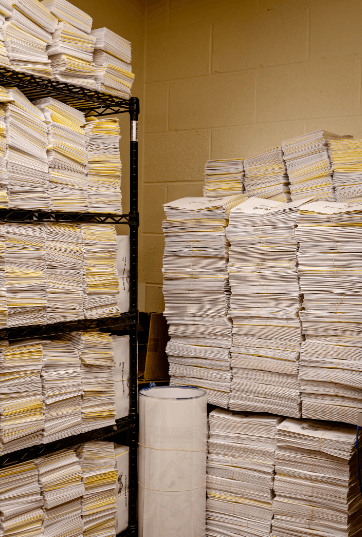佐治亚州选举委员会下令手工计票

【中美创新时报2024 年 9 月 21日编译讯】(记者温友平编译)佐治亚州选举委员会周五投票决定强制各县手工计票选举日投出的所有选票,批评人士称此举可能会大大延迟该战场州的选举结果报告,并给选举后时期带来混乱。《纽约时报》记者尼克·科拉萨尼蒂和约翰尼·考夫曼(Nick Corasaniti and Johnny Kauffman)对此作了下述报道。
这项新规则以 3-2 票通过,与该州最高选举官员和执法官员的广泛法律建议背道而驰。一群无党派的地方选举官员也反对这一变化。
这项新规则是州选举委员会过去几个月通过的一系列右翼选举政策中的最新一项。该委员会面临着越来越大的压力,批评者们已经担心,该委员会正在重写一个关键摇摆州的游戏规则,以支持前总统唐纳德·特朗普。上个月,该委员会授予当地官员新的选举认证权力,反对者表示,如果特朗普在 11 月败选,这可能会扰乱选举进程。
批评者认为,除了机器计票外,新规定还要求手工计票,这可能会给选举过程带来错误和混乱,并可能扰乱选票的保管。
为了在选举之夜开始手工计票,投票工作人员可能不得不打开已填好选票的盒子上的封条,这可能会使选票面临欺诈或丢失的风险。在以前的选举中,除非下令重新计票,否则选票将保持密封并安全存放。
手工计票规则是周五正在考虑的近十几项选举改革之一。这些提议包括各种保守的政策目标,例如扩大党派投票观察员的访问权限。这些提案是在选举前 46 天提出的,此前投票站工作人员已经接受培训,选票也已邮寄给海外选民。
周四,州检察长办公室罕见地对拟议规则进行了评估,称这些规则“很可能超出了委员会的法定权限”。
高级助理检察长伊丽莎白·杨 (Elizabeth Young) 认为,包括手工计票提案在内的五项具体提案要么超出了委员会的法定权限,要么是不必要的冗余。
“因此,在支持这些拟议规则的法规中,没有任何条款允许在选区层面手工计算选票数量,然后再交给选举主管进行统计,”杨在一封信中写道,这封信被《纽约时报》查阅。“因此,这些拟议规则不受任何法规的约束——因此,很可能是机构不能制定的那种不允许的立法。”
州选举委员会主席约翰·费维尔 (John Fervier) 在周五投票前重申了总检察长办公室的指导意见,警告成员们“我们将违背法律顾问的建议,投赞成票”。他还表示,委员会无权制定这样的规则;这种权力完全属于立法机关。
“这个委员会是一个行政机构,而不是立法机构,”费维尔说。“如果立法机关想要这样做,他们会把它写进法令里。”
投票支持新规则的成员之一珍妮尔·金 (Janelle King) 认为,委员会通过提高选举过程的透明度并让选举官员有机会确保最终结果的准确性,“为我们的选举过程创造了更多的稳定性”。
投票是在佐治亚州地方选举官员、民主组织和选民发表 30 多条公开评论后进行的,绝大多数人谴责了这项新规则。许多人反对在选举前夕做出改变,并警告说新规则将削弱该州选举的安全性。
董事会提出了一项类似的提案,要求在佐治亚州提前投票的每一天进行手工计票。金对手工计票过程中早期结果泄露表示担忧。
在周五上午的新闻发布会上,共和党任命的选举委员会成员金反驳了有关委员会在选举日前夕对选举程序进行根本性改变的批评。
“我绝对在考虑时间,”金说,“但我也考虑了我们被赋予的任务,有时并不总是一致的。”
她继续说道:“我们之所以提高标准,是因为选举领导人的权利是共和国的基本核心原则。”
佐治亚州选举委员会曾经是州选举机构中官僚主义的死水,但现在却以 3-2 的右翼多数席位登上了全国头条新闻,而右翼多数派的立场与根植于选举阴谋论的规则密切相关。
上个月,该委员会通过了一项规则,颠覆了佐治亚州数十年来制定的法律,允许地方选举官员在认证选举结果之前进行“合理调查”,民主党人和选举专家表示,这项规则可能会扰乱认证过程。
该委员会还批准对富尔顿县 2020 年选举进行调查,这是右翼选举阴谋论者长期以来的愿望,但远非地方选举官员或国务卿的优先事项。
本文最初发表于《纽约时报》。
题图:上个月,佐治亚州萨凡纳的选民登记处堆满了缺席选票的信封。希拉里·斯威夫特/纽约时报
附原英文报道:
Georgia Election Board orders hand-counting of ballots
By Nick Corasaniti and Johnny Kauffman New York Times,Updated September 20, 2024
Envelopes for absentee ballots were stacked high at the voter registration office in Savannah, Ga., last month.HILARY SWIFT/NYT
The Georgia State Election Board voted Friday to force counties to hand-count all ballots cast on Election Day, a move critics say could significantly delay the reporting of results in the battleground state and inject chaos into the postelection period.
The new rule, which passed on a 3-2 vote, runs counter to extensive legal advice from the top election official and law enforcement officials in the state. A nonpartisan collective of local election officials had also objected to the change.
The new rule is the latest in a stream of right-wing election policies passed by the State Election Board over the past few months. The board has come under increasing pressure from critics already concerned that it has been rewriting the rules of the game in a key swing state to favor former president Donald Trump. Last month, the board granted local officials new power over certifying the election, which opponents say could potentially disrupt the process if Trump loses in November.
The new rule to require hand-counting in addition to a machine count, critics argue, could introduce errors and confusion into the process and potentially disrupt the custody of ballots.
To start hand-counting on election night, poll workers would likely have to break open the seals on boxes of completed ballots, possibly exposing the ballots to fraud or loss. In previous elections, ballots remain sealed and stored securely unless a recount was ordered.
The hand-counting rule was among nearly a dozen election changes under consideration Friday. The proposals included a variety of conservative policy goals like expanding access for partisan poll watchers. The proposals come just 46 days before the election, after poll workers have been trained and ballots have been mailed to overseas voters.
On Thursday, the state attorney general’s office took the rare step of weighing in on the proposed rules, saying they “very likely exceed the board’s statutory authority.”
Elizabeth Young, a senior assistant attorney general, characterized five specific proposals as either exceeding the board’s legal reach or as an unnecessary redundancy, including the hand-counting proposal.
“There are thus no provisions in the statutes cited in support of these proposed rules that permit counting the number of ballots by hand at the precinct level prior to delivery to the election superintendent for tabulation,” Young wrote in a letter, which was reviewed by The New York Times. “Accordingly, these proposed rules are not tethered to any statute — and are, therefore, likely the precise type of impermissible legislation that agencies cannot do.”
John Fervier, the chair of the State Election Board, echoed the guidance of the attorney general’s office prior to voting Friday, warning the members that “we’ll be going against the advice of our legal counsel by voting in the affirmative.” He also indicated that the board does not have the authority to make such a rule; such power rests solely with the Legislature.
“This board is an administrative body, it’s not a legislative body,” Fervier said. “If the Legislature had wanted this, they would have put it in statute.”
Janelle King, one of the members who voted in favor of the new rule, argued that the board was “creating more stability in our election process” by bringing more transparency to the process and giving election officials the opportunity to ensure that the final results are accurate.
The vote came after more than 30 public comments from local election officials, democracy organizations and voters in Georgia, with the vast majority denouncing the new rule. Many argued against making changes so close to the election and warned that the new rules would erode the security of elections in the state.
The board tabled a similar proposal requiring a hand-count following each day of early voting in Georgia. King expressed concern about early results leaking during the hand-count process.
At a news conference Friday morning, King, a Republican appointee to the Election Board, pushed back against criticism that the board was making fundamental changes to the process so close to Election Day.
“I am absolutely considering time,” King said, “but I also consider the job that we have been tasked to do, and sometimes it doesn’t always agree.”
She continued, “We are raising the standard because the right to elect our leaders is a fundamental core principle of a republic.”
The Georgia State Election Board, once a bureaucratic backwater in the state election apparatus, has thrust itself into national headlines with a 3-2 right-wing majority that has aligned itself closely with rules rooted in election conspiracy theories.
Last month, the board passed a rule upending decades of settled Georgia law, allowing local election officials to conduct a “reasonable inquiry” investigation before certifying election results, a rule Democrats and election experts said could disrupt the certification process.
The board also approved an investigation into the 2020 election in Fulton County, long a desire of right-wing election conspiracy theorists but far from the list of priorities of local election officials or the secretary of state.
This article originally appeared in The New York Times.



